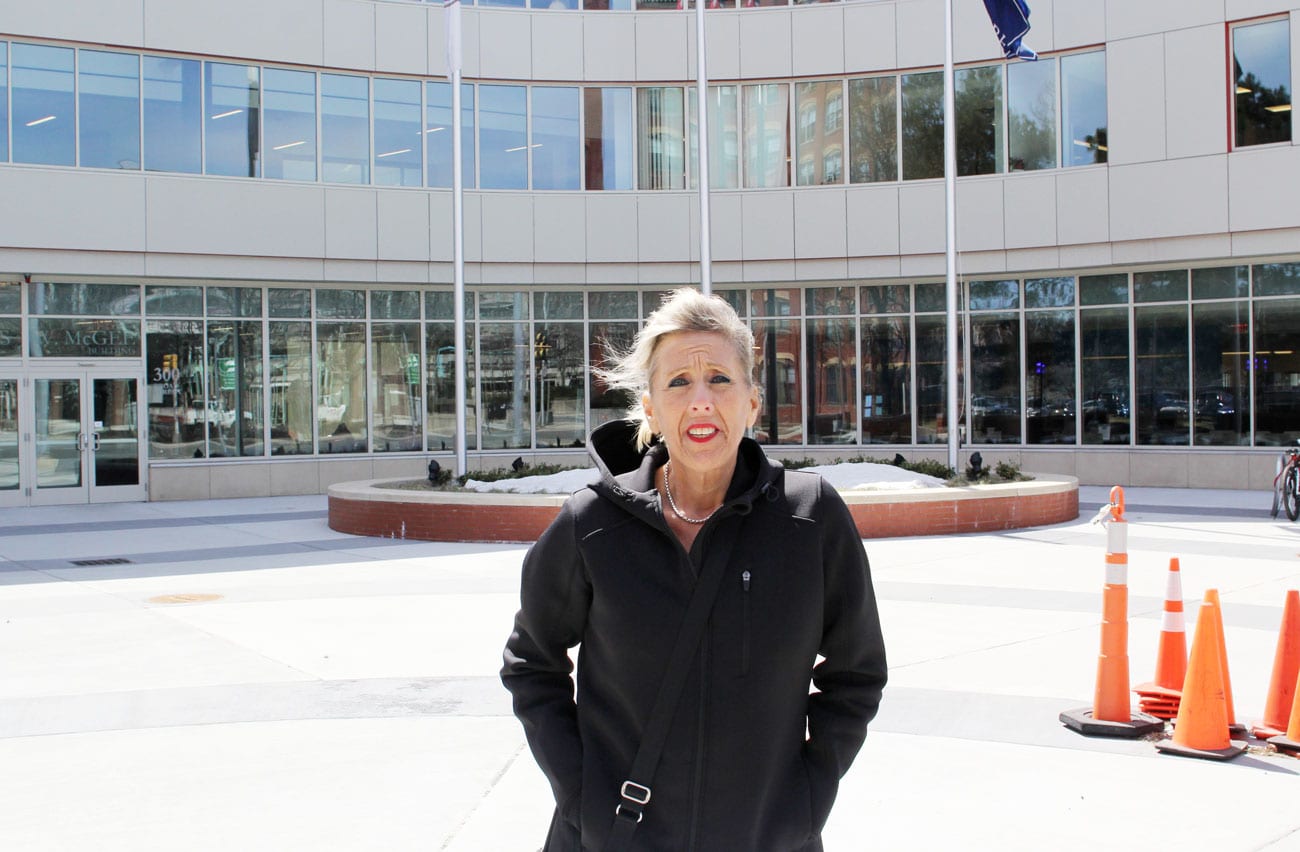LYNN — Debra Shalachman McQuade, a 59-year-old Revere woman, has been able to overcome a learning disability and her struggle with bipolar disorder to graduate next month from North Shore Community College.
McQuade, who will walk across the graduation stage two months before her 60th birthday, attributes much of her success to help she received from the college’s Accessibility Services department, which works with students with disabilities.
McQuade works as a hairdresser for Raffaele’s in Swampscott and took all of her classes on the Lynn campus. She will be getting her associate’s degree in human services.
The mother of two sons, who also has a 2-year-old grandson, has been going to NSCC for five to six years, taking one to two classes at a time. She’s also received two certificates, in youth services and introduction to mental health. She was challenged by an older woman to go to college and take some classes, and walked into the school with no expectations.
McQuade has dyslexia and was diagnosed with bipolar disorder when she was 21. She said the Accessibility Services department helped her learn, taught her how to use technology, and pushed her to keep going when she wanted to quit.
McQuade never thought she was college material. She would get D’s in high school — she graduated Revere High School in 1977 and went on to study at cosmetology school — but has made the dean’s list during her time at North Shore Community College.
She wanted to share her story about what the college offers and offered her for those who may be lacking self-esteem around education like she did. She said there’s so many people out on the street, out of jobs, and suffering from substance abuse issues.
“There’s just so much for those who don’t think they can learn,” McQuade said. “They can get off the street and just give it a shot.”
Before making use of the department’s services, McQuade said she couldn’t understand and retain the material. She would always forget what she read. Filling out forms was overwhelming and using a computer was difficult. With writing, she didn’t know how to begin or end a paragraph.
McQuade said one staff member in the department, Alena Vitvitskaya, an adaptive lab learning specialist, is basically her hero. Without her, McQuade said she wouldn’t know how to use Microsoft Word or how to turn a computer off or on.
McQuade made use of a special computer software, Kurzweil 3000, which provides support for those who struggle with literacy in the classroom, at home or in the workplace, according to Susan Graham, director of Accessibility Services.
“I went there (the department) and they directed me,” McQuade said. “If they can do that for me, they can do that for a lot of people who do not realize software is out there that can help people. I wasn’t planning on walking the stage at 60 years old with young-uns.”
With Kurzweil, Graham said students can read their material by hearing and seeing at the same time.
Vitvitskaya said the Kurzweil software helps people with dyslexia or a reading disability, which includes text to speech, allowing someone to listen to a text that’s being read. She said this allows McQuade to comprehend what she’s reading.
Graham said the Accessibility Services department serves all students who have any type of condition under the Americans with Disabilities Act (ADA). If they’re approved to use the adaptive lab like McQuade was, students are able to have access to all of their exams in the lab, with limited distractions.
She said the department’s job is to make sure people with disabilities have access to the curriculum, activities and programs, but also to help them build advocacy skills, independence and teach them how to manage their time and balance their work, school and life schedules.
Graham said for many adults, like McQuade, there’s a level of uncertainty about navigating college. Adults coming back to college are not just learning the academics, but are learning all of the technology, so it’s a different world. She’s seen McQuade’s psychological growth throughout the process.
“For Debra, she came in not thinking she could do it,” Graham said. “Her level of confidence has certainly grown over the years. She’s in a place now where she’s quite proud of herself and I’m quite proud of her … She has come such a long way and for me, seeing the students that work with accessibility services graduate is an absolute highlight of my year.”
Vitvitskaya said when McQuade came in, she was very insecure and didn’t know how to use a computer. For McQuade, it was more than just learning how to use the software, it was learning how to use technology in general. Nowadays, she said a student does need to know technology — not knowing it is a barrier toward success.
“She went from not knowing anything to being comfortably knowledgeable to be able to do her work,” Vitvitskaya said. “Forty years later, what stopped her from continuing school is not stopping her now. At 60 years old, she starts again, starts something she never thought she would be able to do. Now, she’s graduating.”
McQuade is hoping people see that she gave it a shot and think that they can as well.
“When you motivate yourself, it’s like self-motivation to keep continuing,” she said. “There’s people there that can help you, but it’s about taking the first step.”

